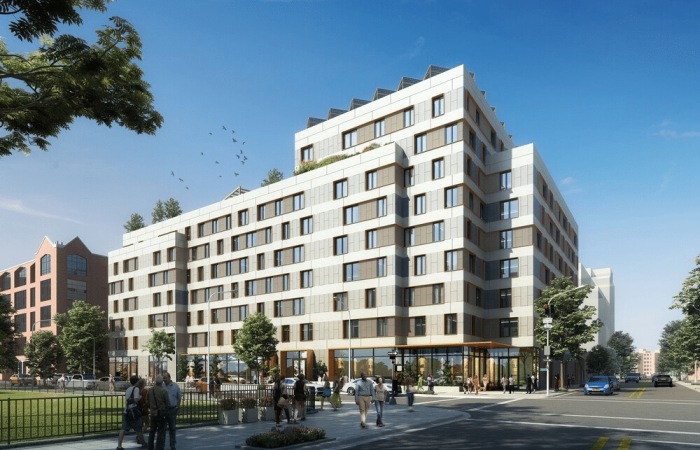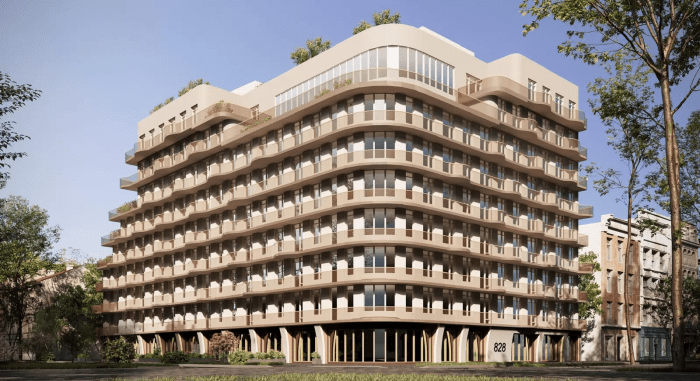That the Nets are coming is beside the point. And that The real story is that the Atlantic Yards project — and its companion Let’s dispose of the sidebar first: Atlantic Terminal is probably The site’s residential neighbors might not like to hear this, but With virtually no public consultation (and no request for competing proposals), Ratner’s architect (sorry, the media’s been instructed to say People live in Brooklyn (and pay millions for homes in neighborhoods abutting
is the real story, a story masterfully buried by developer Bruce Ratner
and his media shills. (When the New York Times is your real estate partner,
it’s amazing the story its pages will tell — more than three
pages featuring nine upbeat, luciously illustrated stories in Thursday’s
edition.)
Downtown Brooklyn Plan — is not about the Nets (whose stadium would
occupy a tiny part of the massive site), it’s about a land grab by
Ratner and his political clients, the largest, most expensive government
seizure of private property for private benefit ever in Brooklyn.
the best site in town for a Nets arena, just as it would have been for
the Dodgers in the ’50s.
the Flatbush-Atlantic area is too good a hub to leave fallow, and they
should have suspected that Ratner’s early step there — the ugly,
dysfunctional, failed Atlantic Center shopping mall he opened in the ’90s
and his takeover of the Manhattan-centric, expansionist (in a real estate,
if not an artistic, vein) Brooklyn Academy of Music — was little
more than a holding action.
Gov. Pataki is apparently prepared to condemn enough privately-owned property
to allow a potential build-out of more than 14 million square feet, the
equivalent of seven Empire State buildings.
“world renowned” architect) Frank Gehry said his intent is to
build a neighborhood from scratch. Brooklyn’s been hot for a number
of years, and not because there’s nothing here worth preserving.
the condemned sites) for many reasons, not the least of which is it’s
not Manhattan but close to it, and it’s not the kind of sterile,
suburban campus represented by Ratner’s Metrotech which, contrary
to popular but uninformed opinion, is anything but a smashing success.






















